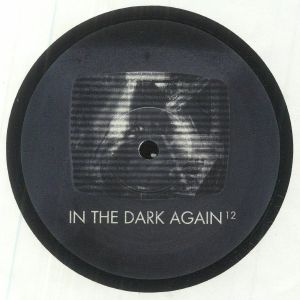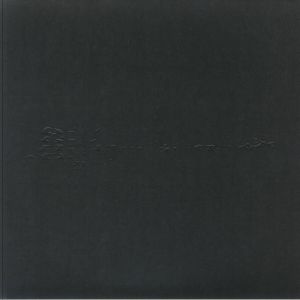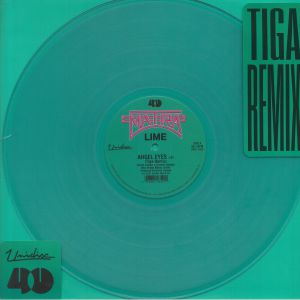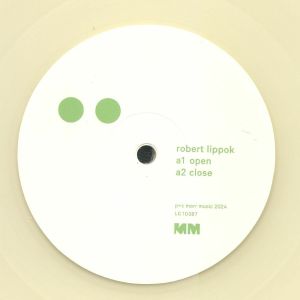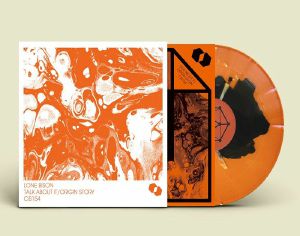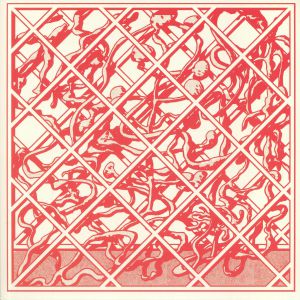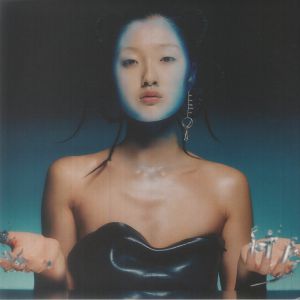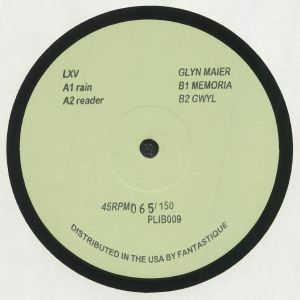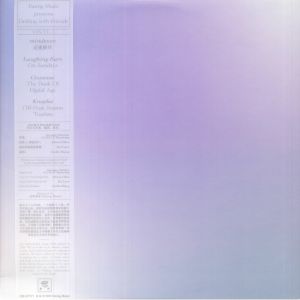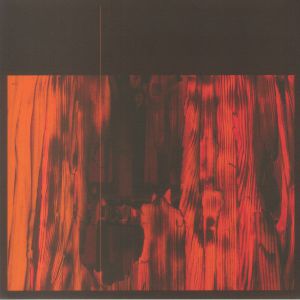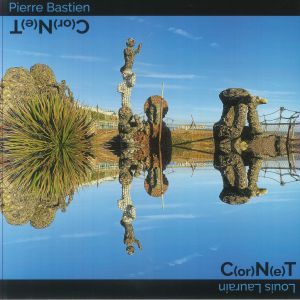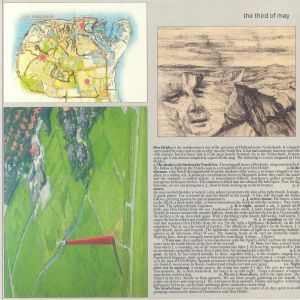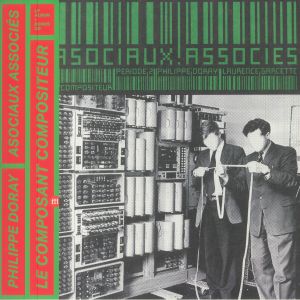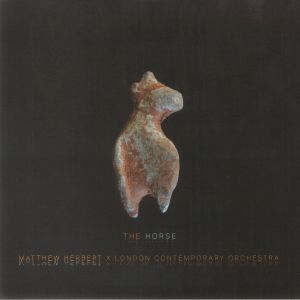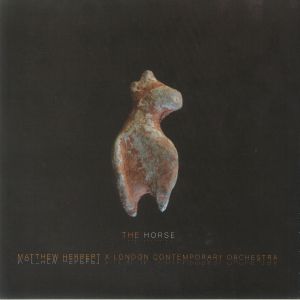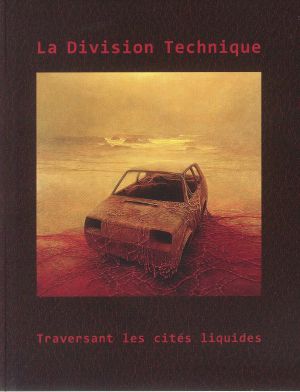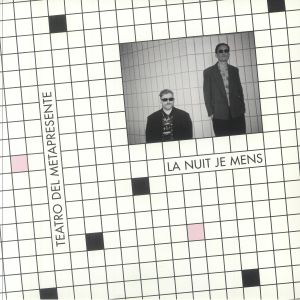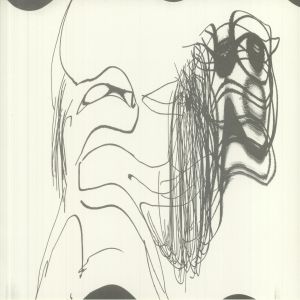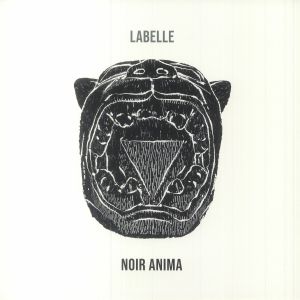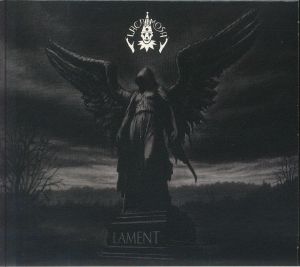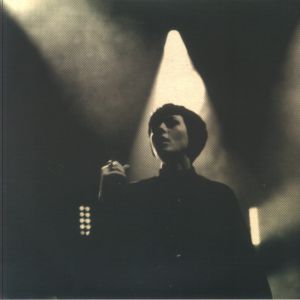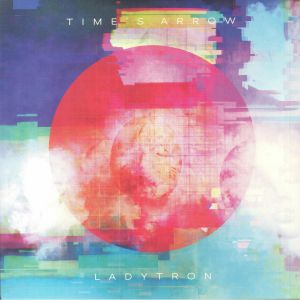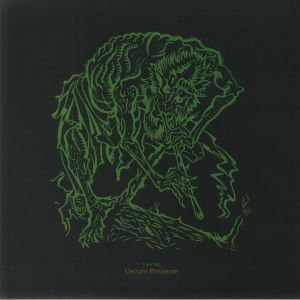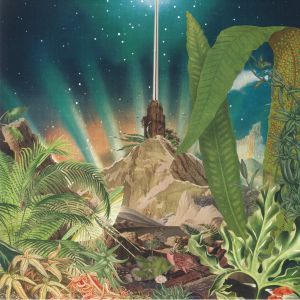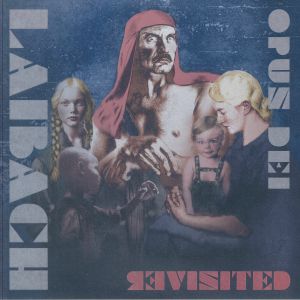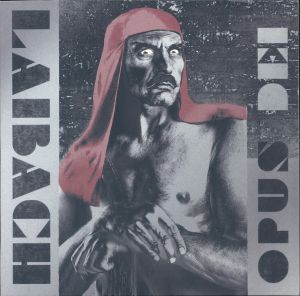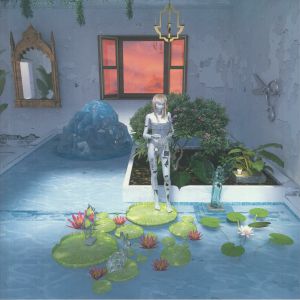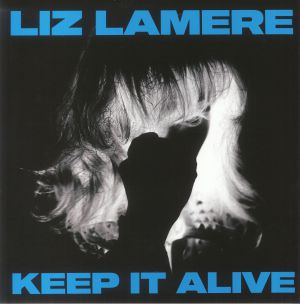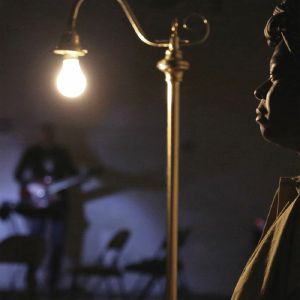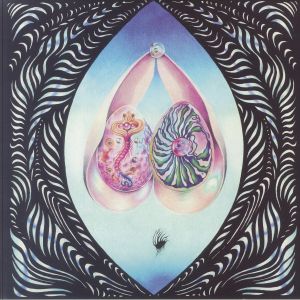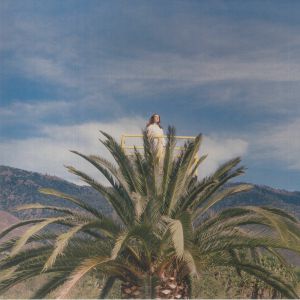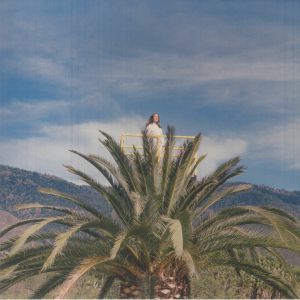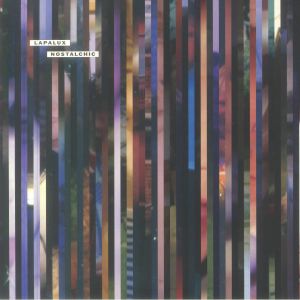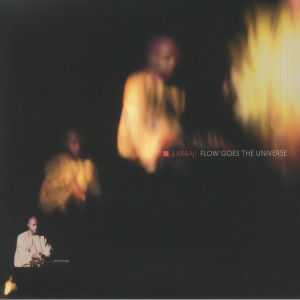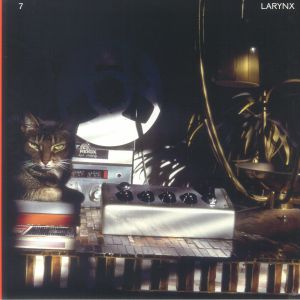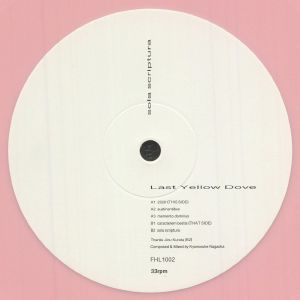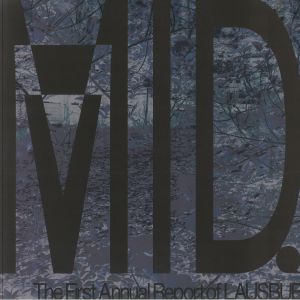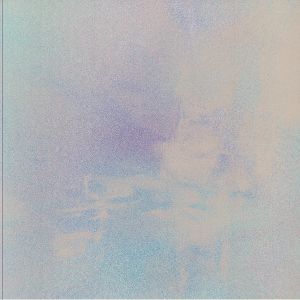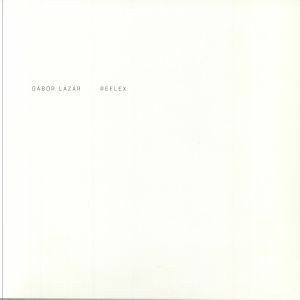Filter
Genre
在庫状況
Release Date
Featured
リリースタイトル
タグ
Back catalogue: All genres
Juno's full catalogue of All genres
シングル
in stock $21.59
Review: Glasgow's Lanark Artefax hasn't dropped a new record in around four years but now breaks that hiatus with a fresh EP on AD 93. These five cuts are all precision moulded for maximum impact, and they all very much sound like they have come back from the future. 'Surface Light' rides on lurching beats and pristine lasers cut them up as reflective metal surfaces twist and turn. 'Metallur' is double time, mind-melting and overdriven synth madness with a jittery rhythm propping up the melodic madness. 'Meszthread' is serrated electro with edges so sharp they might cut you and 'Tris' then take a moment to wallow in some dramatic synthscapes. 'At The Bay' soundtracks the end of the world with a real sense of doom and finality.
… Read morePlayed by: M50, Juno Recommends Experimental
in stock $22.14
Angel Eyes (limited translucent green marbled vinyl 12")
Cat: SPEC 1859. Rel: 28 Feb 22
Coldwave/Synth
Review: Definitely one for the collectors, Lime was Canadian duo (then husband and wife) Denis and Denyse LePage, and 'Angel Eyes' was originally the second single from their third studio album, 1983's Lime III. Almost 40 years later, the track has returned as a short form release, offering the original synth pop anthem, and a clubbier dub mix.
For many, though, not least Unidisc Canada, the label carrying this re-release, the major selling point is a remix - and something of a remodelling - courtesy of Turbo Recordings boss and dance music icon Tiga. Forsaking the rather smiley and bouncy original work, in favour of something grittier and altogether more dystopian, it's a masterclass of rough, gnarly broken electro, reworking and chopping vocals into disorientating loops, before finally introducing a kind of warehouse synth pop sound.
… Read moreFor many, though, not least Unidisc Canada, the label carrying this re-release, the major selling point is a remix - and something of a remodelling - courtesy of Turbo Recordings boss and dance music icon Tiga. Forsaking the rather smiley and bouncy original work, in favour of something grittier and altogether more dystopian, it's a masterclass of rough, gnarly broken electro, reworking and chopping vocals into disorientating loops, before finally introducing a kind of warehouse synth pop sound.
in stock $20.49
Open Close Open (remastered) (limited luminous vinyl 12" + MP3 download code)
Cat: MORR 202EP. Rel: 23 Feb 24
Ambient/Drone
Review: Here we have the remastered edition of Robert Lippok's Open Close Open. Originally released in 2001 on the well-respected German glitch ambient label Raster Noton, the release has built a strong buzz about it. Late last year, the decision was to remaster the EP to the delight of the fans. The first 'Open' is very minimal with a very sparse beat to it. Glitch ambient and the cuts and click style of that period is wonderfully represented by this sound. To most fans of the release, 'Close' is the reason for the buzz. The combination of field recordings, glitch and a beautiful almost movie like soundtrack to it, makes this piece one of the most beautiful ambient pieces in the genre of glitch ambient. Hearing this remastered, really brings out the beauty even more so. This new version also features the very worthy piece 'Licht' to close out the release. It is very fitting that the amazing Morr Music honor this piece by releasing it.
… Read morePlayed by: Juno Recommends Ambient/Drone
in stock $26.30
Talk About It (heavyweight translucent "agent orange" black in orange splattered vinyl 12" + insert + MP3 download code)
Cat: CIS 154. Rel: 04 Jul 24
Post Rock/Experimental
in stock $26.30
in stock $22.14
in stock $26.02
Rain (numbered hand-stamped 12" limited to 150 copies)
Cat: PLIB 009. Rel: 21 Jun 21
Experimental/Electronic
in stock $26.56
EM 037V1 (silver vinyl 12" + MP3 download code with obi-strip)
Cat: EM 037V1. Rel: 10 Aug 22
Experimental/Electronic
Review: Outlier experimental label Eating Music brings back more for us to chew on here in the form of a varied four tracker from various artists. It is Mindexxx that opens with 'Track 1' which layers up snaking synths and deeply buried dark bass that grows in intensity and washes over you like a Tsunami. Laughing Ears then cuts back to a tender mood with soft piano chords and slowly unfolding rhythms that are warm and lithe. Gooooose's 'The Dusk Of Digital Age' is a churchy affair with textured drones shot through with beams of synth light and Knopha's 'Off-Peak Season Tourists' layers up choral vocals and jumbled drum sounds into something hypnotic and escapist.
… Read morePlayed by: Juno Recommends Experimental
in stock $28.52
Cover (Something Newly Missing) (12" + inserts)
Cat: RAW 07Y075. Rel: 02 Oct 20
Experimental/Electronic
in stock $31.56
アルバム
in stock $24.09
Review: Gong bath, anyone? Soft & Fragile is a three track outing built on a framework of custom made bells and chimes, at least one of which was created by the artist - namely Bandt's 'flagong', a three-story glass marimba the musician crafted in the late-1970s, apparently inspired by the so-called 'cloud chamber bowls' of Harry Patch, a chap known for developing weird and wonderful sound-making devices.
She uses the instrument to stunning effect solo on the opening effort, 'Ocean Bells', creating a gently flowing arrangement that sucks you in quickly. From there, she's joined by Julie Doyle, Gavan McCarthy, and Carolyn Robb to complete the full LIME (Live Improvised Music Events) lineup, and the work becomes more complex still, without ever being overbearing or overly theoretical.
… Read moreShe uses the instrument to stunning effect solo on the opening effort, 'Ocean Bells', creating a gently flowing arrangement that sucks you in quickly. From there, she's joined by Julie Doyle, Gavan McCarthy, and Carolyn Robb to complete the full LIME (Live Improvised Music Events) lineup, and the work becomes more complex still, without ever being overbearing or overly theoretical.
Played by: Alexis Le-Tan, Manu Archeo
in stock $28.78
Review: Pierre Bastien has a strong team record of interesting collaborations. He's done stuff with fashion designer and scent mogul Issey Miyake, legendary singer and composer Robert Wyatt, and the enigmatic electronic producer and reality-shifter Aphex Twin, releasing no less than three full length records on the latter's landmark label, Rephlex. "A mad musical scientist", the Guardian once quipped, and C(or)N(e)T doesn't break from that tradition. Instead, it offers some of the most abstract and strange, beguiling and fascinating sounds we've heard in a while. At least a few of which have been made on self-made, bespoke pieces of equipment. At a push, you might label this jazz, for the simple fact it's so free-form and avant-garde. Realistically, though, it sounds like the noises that might happen if someone attempted to tame a pack of rogue electronic hubbub-chatting things in a vaguely structured way. "Thank fuck for Pierre Bastien", the Quietus once said. We happily concur.
… Read more in stock $28.52
Bad Cameo (limited translucent purple vinyl LP (indie exclusive))
Cat: 602465 931068. Rel: 25 Oct 24
Hip Hop/R&B
Review: Lil Yachty and James Blake's Bad Cameo showcases their fearless creativity, blending Yachty's dynamic vocals with Blake's signature production. Tracks like 'Missing Man' and 'Transport Me' shine with captivating depth, while 'Red Carpet' offers a soulful, gospel-infused highlight. The album's experimental nature, especially on tracks like 'Save the Savior' and 'Midnight', reflects the duo's bold approach, pushing boundaries with each song. Even in its unexpected turns, Bad Cameo remains an exciting exploration of sound. Available on limited magenta vinyl, this release is a fresh, innovative take from two artists unafraid to try something new.
… Read more in stock $39.58
in stock $38.48
Review: Den Helder is the northernmost city in Holland, is surrounded by water and borders the North Sea. With a military history dating back to the 16th century, it is also the most bombed city in the Netherlands and was nearly destroyed during World War II. The Third of May was written and recorded in 2020 over six days in an old pumping station located in the dunes of Huisduinen near Den Helder. The story behind the album is set in this historic city, weaving its tumultuous past into a vivid, imagined narrative inspired by the area's rich and tragic history. It's as much of an emotional rollercoaster as you would expect given the concept.
… Read more in stock $24.92
Le Composant Compositeur (limited LP + CD + insert with obi-strip)
Cat: FFL 089LP. Rel: 16 Jan 24
Experimental/Electronic
Review: To say Philippe Doray and his Asociaux Associes finished the 1970s with creative fervour would be an understatement. First we had 1976's Ramasse-Miettes Nucleaires, then two years after that there was the equally potent Nouveaux Modes Industriels. Both were heralded as ahead of their time, at the time, bringing together strange, otherworldly pop, spacey prog, prototypes of Krautrock and impassioned poetry. Le Composant Compositeur followed, and in their own words marked the beginning of a new era in the 'Antisocial Associates' project (to use the English translation). It's a marvellous addition to the collection, too, a series of sharp, edgy, mutant pop tracks, weirdo brass experimentation, compressed electro, dubby ideas, and twisted, acid-spiked fairground themes.
… Read more in stock $30.18
The Horse (limited gatefold bone vinyl 2xLP (indie exclusive))
Cat: 405053 8899863. Rel: 30 May 23
Modern Classical
Review: We all know that Matthew Herbert is a far out sonic experimenter who will look to make music with and from anything. But this project might be his most outlandish and extraordinary to date. It starts with him looking for the largest possible animal skeleton to explore though music. He settled on a full size horse and from that made flutes from its thigh bones and bows from ribs and hair. Gut strings stretched over the pelvis feature in the mid-section and even more bizarre than that is the fact he travelled to ancient cave paintings of horses in Northern Spain to record reverb at their door. Brilliantly bonkers as ever.
… Read more in stock $41.80
in stock $35.98
in stock $23.53
Zero 999 (silver vinyl LP + MP3 download code in die-cut sleeve limited to 200 copies)
Cat: OOH 42. Rel: 24 Apr 25
Experimental/Electronic
in stock $23.24
Cat: RASLP 002. Rel: 17 Dec 24
Coldwave/Synth
Review: A to-the-T emulation of a classic coldwave/post-punk sound is heard on this debut album by La Nuit Je Mens, a duo split between the Parisian suburbs and southern Italy. Now based in Rome, the pair have come up with a proper synthoid slammer, commandeering a fleet of analogue machines, each member in their own independent wheelhouse. Both artists take up vocals, exploring such tragicomic themes as the slow decline of the clubbing scene and clandestine goings-on in the nostal-chic European underground scene, marking out a sordid subconscious below ostensibly blank progressions. Huge degrees of texture, harmonic range and dynamism are packed into these otherwise rawly armed recordings, with 'Posterite Du Soleil' in particular fitting an immensity of new wave gothic romance into a narrow four-instrument limitation.
… Read more in stock $26.30
Equal Amounts Afraid (LP + insert limited to 300 copies)
Cat: OO 001. Rel: 26 Nov 21
Experimental/Electronic
in stock $24.09
in stock $24.36
May Your Dreams Come True (clear vinyl LP + MP3 download code)
Cat: INNL 238. Rel: 16 May 23
Indie/Alternative
in stock $38.20
in stock $22.14
in stock $31.00
! low stock $33.21
Review: Reissued over two decades since its original release, the second full-length from Liverpool's Ladytron still thrums with the same sharp-edged futurism that made it such a cult touchpoint. Tracks like 'Seventeen' and 'Evil' captured a tension between robotic detachment and raw emotional charge, anchored in the band's icy synth palette and minimal, deadpan vocals. While 'Blue Jeans' flirts with glammy melancholy, 'Turn It On' and 'Fire' dial up the menace, tapping into something more volatile. There's something surgical about the sequencing tooi'Cracked LCD', 'NuHorizons' and 'Cease2exist' stretch into more abstract terrain, before folding back into hook-laced electro-pop with the closing title track and 'The Reason'. With Daniel Hunt and Mickey Petralia co-producing, the album took shape in Los Angeles but never lost the European chill that defined their sound. It's a record that helped redraw the map for synth-pop in the early 2000sineither retro-futurist pastiche nor pure nostalgia, but something sleek, cinematic and entirely their own.
… Read morePlayed by: Juno Recommends Leftfield
in stock $33.78
Time's Arrow (heavyweight vinyl LP + insert + MP3 download code)
Cat: COOKLP 826. Rel: 19 Jan 23
Coldwave/Synth
Review: Ladytron return with their highly anticipated seventh studio album Time's Arrow, a panoramic view of many different electronic music styles, umbrella-ed by the arch of indie rock. Building on the Liverpool-based band's rise to prominence in the early 2000s off the back of the electroclash wave, Time's Arrow makes for a whirlwind of difference to back then - shoegaze, indietronica and cloudy industrial music all crop up now, making this a stylistic departure of note.
… Read more in stock $23.81
in stock $37.64
Imaginary Island Music Vol 2: Ascension (limited LP)
Cat: CREP 97. Rel: 18 Apr 23
Experimental/Electronic
Review: Tenerife-based trio LAGOSS are back with a second album of escapist electronic sounds. Goncalo F. Cardoso, Mladen Kurajica and Daniel Garcia leave behind the mega-mix vignette of their first album for a more song-based but still avant-gard collection here. Their raw, live jamming style mixes up tropicalia and electronic freakouts with found sounds, percussion, bird calls and rich samples that all bring these tracks to life as it moves through various different moods, gores, genres and eras with style. Somehow inviting yet eerie, this a very personal sound world but we're all welcome inside.
… Read more in stock $26.86
Review: Laibach and A/political present Alamut, a new, symphonic album inspired by Vladimir Bartol's 1938 novel of the same name. Recounting an 11th-century Persian tale - centered on the charismatic and enigmatic Hassan-i Sabbah, leader of the Nizari Ismailis and founder of the Order of Assassins - this is a shadowy, ninja-black-wax initiation into an esoteric order of spies. Laibach's work blends classical Persian poetry, minimalist orchestral textures, and industrial elements, reflecting both historical propaganda tactics and Bartol's critique of rising Fascism in 1930s Italy. Released on double vinyl and CD box set through Mute, the album was recorded in 2022 at a former Crusader castle in Ljubljana; it features the RTV Slovenia Symphony Orchestra, Tehran's Human-Voice Ensemble, the Gallina Women's Choir, and the women's accordion orchestra AccordiOna, conducted by Navid Goharib.
… Read more in stock $31.84
Review: Laibach has announced the release of Opus Dei Revisited, a newly reworked version of their seminal 1987 album. This project features two distinct versions of the original work. The first disc showcases a complete reimagining of the tracks, developed during the band's ongoing Opus Dei Revisited tour. The second disc includes fresh remixes by Rico Conning, who produced the original album, allowing him to reinterpret the source material while preserving key elements. Opus Dei was Laibach's first release with Mute Records, propelling them into international recognition and spotlighting their unique sound. The album includes Leben heiBt Leben, a German-language adaptation of Opus' Live is Life, which will again be featured on this release. Formed in 1980 in the industrial town of Trbovlje, Slovenia, Laibach's provocative performances and imagery have earned them a reputation as one of Eastern Europe's most influential collectives. Opus Dei Revisited promises to challenge perceptions and expectations, echoing the band's relentless pursuit of artistic innovation.
… Read more in stock $28.24
Review: Mute Records presents a newly reissued and remastered edition of Laibach's classic 1987 album, Opus Dei. This time coming to a black vinyl and CD box set, the album is renowned for its bringing Laibach to a wide audience; without the album's early successes, this pioneering industrial, neo-classical rock outfit might've never broken from their native Slovenia. With their unique interpretations of Opus' 'Live is Life' and Queen's 'One Vision' and produced by Rico Conning, the album still bears the torch of one of Mute's most eclectic yet captivating albums.
… Read more in stock $24.92
I Want The Door To Open (clear marbled vinyl LP + poster + insert)
Cat: HAR 132. Rel: 20 Oct 21
Indie/Alternative
in stock $27.96
in stock $23.24
Stories Del Tiburon Lloron Del Amazonas (3 x cassette limited to 100 copies)
Cat: SUC 565758. Rel: 26 Feb 25
Experimental/Electronic
in stock $27.13
Played by: Juno Recommends Downtempo
in stock $28.24
Review: New York artist Aaron Landsman and former Swans guitarist Norman Westberg kept vigilant watch with Night Keeper, a full nocturne named after Landsman's play of the same name. First performed in Spring 2023 at The Chocolate Factory Theater in Queens, with performer Jehan O. Young serving as narrative steward, the original piece filled the space with spoken word, projections, choreography, and music, moving between dim light and darkness. Now the recorded version posterises the performance, as Westberg's original texture-scapes come raggedly coiled around sombre loops and samples, as Young's laryngeal monologues course across the record's rough 44 minutes worth of gloaming. Inspired by sleepless nights and the wandering of the mind, Night Keeper lifts the lid on the wee small hours as would a well camouflaged nightjar, inviting listeners to embrace the subdued chaos of the dark.
… Read more in stock $21.87
Magister Perotinus Meets The Jedi Masters (LP + insert + MP3 download code)
Cat: BS 084. Rel: 18 Jul 24
Modern Classical
in stock $24.64
Love Hallucination (gatefold LP + MP3 download code)
Cat: HDBLP 063. Rel: 27 Jul 23
Experimental/Electronic
Review: Hyperdub continues to stamp its authority down on a wide variety of electronic music, in this case throwing the light, bouncing club-ready sounds of Canada's Jessy Lanza into the mix of a back catalogue that touches on everything from ambient to dubstep and footwork. But, while we open on the snare-happy garage-house of 'Don't Leave Me Now', and tracks like 'Drive' also look to the dancefloor, things don't stay there long. 'Don't Cry On My Pillow', for example, is a low stepping piece of alternative electronic soul. 'Big Pink Rose' opts for synth refrains and staccato drums to create a steamy, heady neon r&b brew with added yacht. 'Double Time' deconstructs pop balladry and makes it sound lo-fi yet huge, 'I Hate Myself' seems to take a lead from tropicalia-hued, leftfield electronica.
… Read more in stock $21.31
Big Pink Rose
Review: Jessy Lanza has always been quintessentially Hyperdub. A label helmed by garage, dubstep and bass DJ and producer, and academic music theorist Kode 9, the imprint has relentlessly pushed the kind of dance tracks that are unashamedly direct yet unarguably clever. Beats that acknowledge the delicate balance of fun and accessible with underground and intelligent. 2023's Love Hallucination, Lanza's fourth studio album, only adds to the evidence. It bubbles with pop sensibilities, sing-along worthiness and timeless infectiousness, but does so in an incredibly thoughtful, natural-yet-razor-accurate way. From two-step to slo-mo funk, r&b and steamy electro groove, it presents the kind of songwriter who makes sure chart and radio friendly doesn't always mean throwaway or one dimensional. Infinitely repayable stuff.
… Read more in stock $20.49
Review: When Nostalchic was first released in 2013, Lapalux was already well established as a central figure in the booming LA beat scene orbiting around Flying Lotus' Brainfeeder label. Given how entrenched in the 2010s that whole movement was, the music itself has matured beautifully over the past decade to become a heartfelt benchmark in a sub-genre that thrived on innovation and unexpected swerves. It helps that there are some choice detuned synth lines which fold time across the ages on the likes of 'Guuurl', proving Lapalux was always about the feels more than the shock and awe of the beats. Having only a modest run the first time around, now the album has been repressed for the first time as a limited edition on clear vinyl.
… Read more in stock $26.02
Flow Goes The Universe (gatefold 2xLP + MP3 download code)
Cat: WAST 063LP. Rel: 17 Sep 21
Experimental/Electronic
Played by: Admin
in stock $31.56
in stock $38.20
in stock $34.88
in stock $31.84
in stock $42.91
in stock $21.49

 USD
USD






